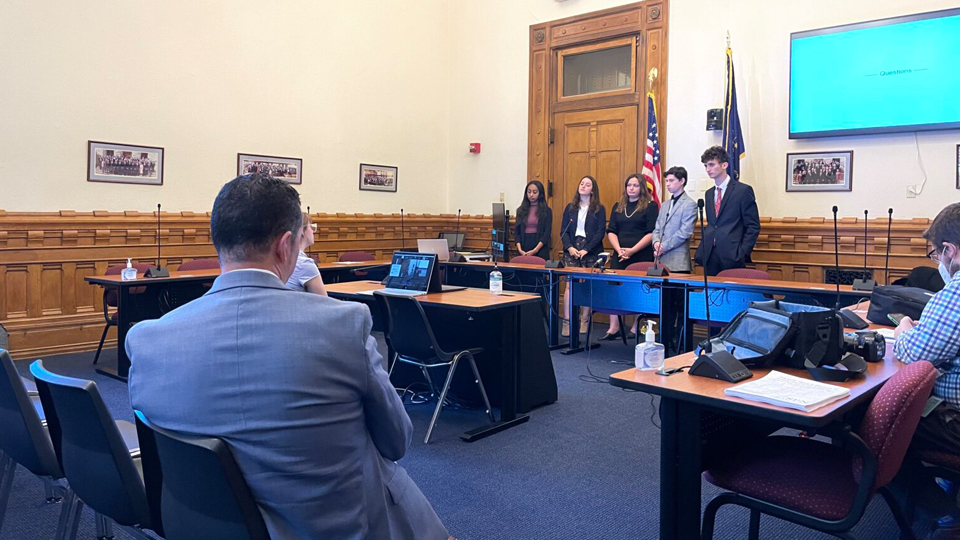Lawmaker readies second take on Hoosier renters protections
Subscriber Benefit
As a subscriber you can listen to articles at work, in the car, or while you work out. Subscribe Now
Legislation allowing renters to withhold rent from landlords who don’t make critical habitability repairs, and expanding tax credits for renters, holds potential in Indiana, according to a report released Wednesday as lawmakers ready bills for the 2023 legislative session.
Housing constitutes the “civic fabrics of our communities,” said Indiana Sen. Fady Qaddoura, D-Indianapolis, who spoke at the report’s unveiling in the Indiana Statehouse.
Renting while uninhabitable
Indiana is one of just five U.S. states without laws on rent escrow, according to the 17-page report, prepared by the student-run Student Policy Network of the University of Notre Dame for nonprofit Prosperity Indiana.
Under typical rent escrow laws, tenants can temporarily pay rent to a third party, such as a court, when landlords are notified of serious problems but fail to make timely repairs. Hoosier renters can sue their landlords, but usually represent themselves, while most landlords pay professional legal defense.
The report included comparisons between several other states and recommended that Indiana follow Minnesota’s highly detailed model, which includes specific scenarios, legal protections for all parties and a clear-cut definition of “essential” rental functions.
Qaddoura attempted to establish a rent withholding policy with 2021’s Senate Bill 230, but it died in a House committee controlled by Republicans. He’s taking a second stab at it next session, albeit with some tweaks.
“After further discussions with the chairman of the Local Government Committee, Sen. Jim Buck, it was clear and apparent to me that there’s hesitation within his caucus to support such ideas,” Qaddoura told the Capital Chronicle. “So we spent the summer looking at different models.”
Local origins
An escrow account approach centered on the judicial system, he said, could ensure legal protections and fairness for all parties, “so it’s not just haphazard claims of a tenant or landlord accusing each other.”
Qaddoura has been involved in the saga of an infamous nonprofit housing provider operating in the Indianapolis area. New Jersey-based JPC Properties has faced utility shutoffs, lawsuits and ownership changes over dangerous living conditions and rent payment mismanagement at multiple former properties.
“These are individuals who, as recently as a couple of months ago, were banned from working or operating in the state of Indiana or managing apartment complexes in Indiana for at least the next seven years. These are individuals who steal money from tenants without paying their utilities,” said Qaddoura, who lambasted what he called reluctance by General Assembly leaders to “go after criminals.”
Jessica Preddie, a case worker at shelter Family Promise of Greater Indianapolis, described one family who couldn’t get its landlord to address mold in its unit, to steep personal and financial consequences. One family member was hospitalized at least three times over a period of eight to 12 weeks this year, lost her job while hospitalized, and couldn’t pay the rent she still owed on the moldy unit.
Tax dollars off
The report also explored expanding Indiana’s tax credits, recommending that lawmakers narrow eligibility to the state’s most vulnerable residents, raise credit allocations for those particular populations and incorporate incentives for donations to qualifying affordable housing projects.
Qaddoura said he planned to introduce a bill or amendment to increase deductions for renters, along with another attempt at establishing rental habitability standards.
He’s also at the center of a potentially bipartisan endeavor to give Indiana Attorney General Todd Rokita more power over nonprofit landlords; Rokita filed a lawsuit against JPC leaders in 2021 but was rebuffed by the Marion County Superior Court for a lack of standing.
All could fit within a broad legislative recommendation from a recent state task force, “Address substandard housing.”
